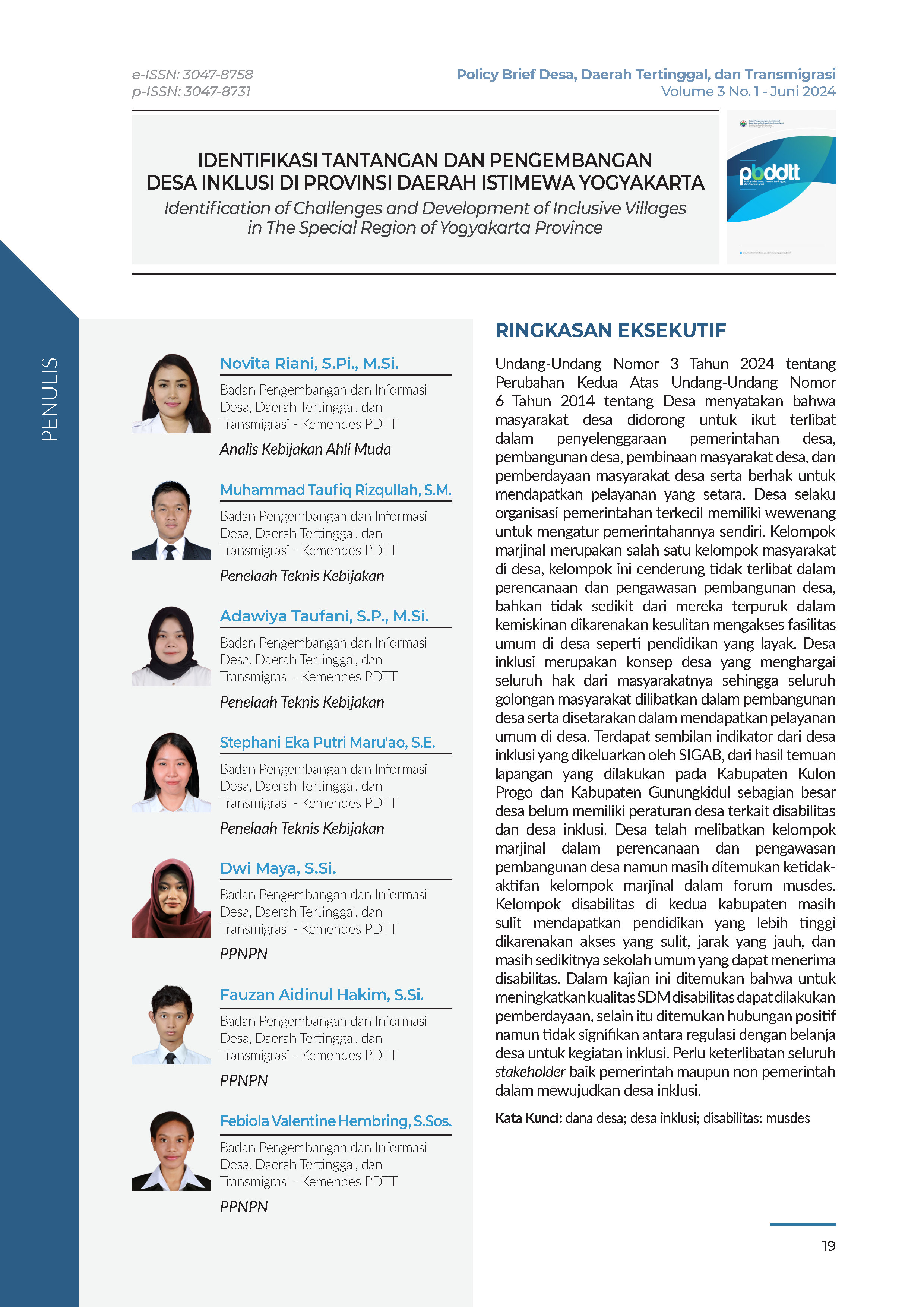Identification of Challenges and Development of Inclusive Villages in The Special Region of Yogyakarta Province
Keywords:
disability, inclusive village, village deliberation, village fundsAbstract
Law Number 3 of 2024 on the Second Amendment to Law Number 6 of 2014 on Villages states that village communities are encouraged to participate in organizing village governance, village development, village community development, and village community empowerment. The communities also have the right to receive equal services. The village as the smallest government organization has the authority to regulate its own government. Marginalized communities are one of the community groups in the village, this group tends not to be involved in planning and monitoring village development, even quite a few of them are trapped in poverty due to the difficulty of accessing public facilities in the village such as decent education. An inclusive village is a concept that respects all the rights of its people so that all communities in society are involved in village development and are equal in obtaining public services in the village. There are nine indicators of inclusive village issued by SIGAB, the findings which carried out in Kulon Progo Regency and Gunungkidul Regency show that most villages do not have village regulations regarding disabilities and inclusive villages yet. The village has involved marginalized communities in village development planning and supervision, but these communities are still inactive in the village deliberation forum. Disabled communities in both districts still have difficulty getting higher education due to difficult access, long distances, and the small number of public schools that can accept people with disabilities. In this study, it was found that to improve the quality of disabled human resources, empowerment can be carried out, in addition, a positive but insignificant relationship was found between regulations and village spending for inclusive activities. The involvement of all stakeholders, both government and non-government, is needed in realizing inclusive villages.
Downloads


